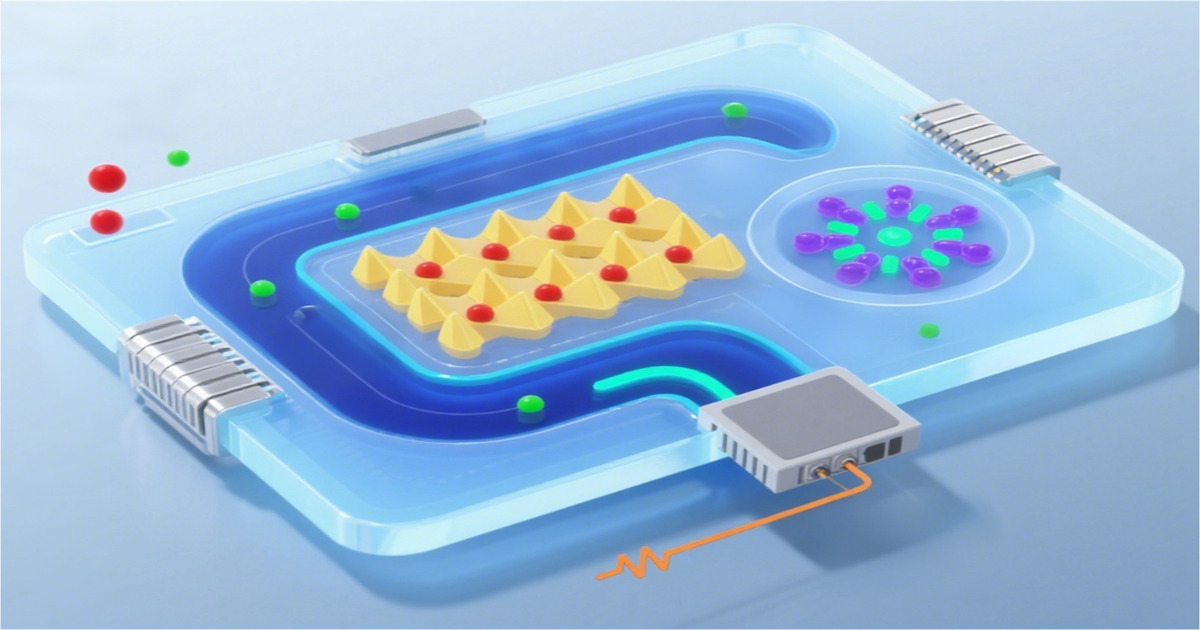- 3.0Impact Factor
- 6.0CiteScore
- 18 daysTime to First Decision
Microfluidics in Biomedical Research
Special Issue Information
Dear Colleagues,
Microfluidics can precisely manipulate fluids or bioparticles by creating channels with dimensions of tens of micrometers using microfabrication. Over the past few decades, microfluidics has made important contributions to many subject areas, from chemical science and biomedical engineering to information science. Especially for the area of biomedical research, microfluidics has been widely employed for sample preparation, single-cell analysis, molecular detection, and disease diagnosis. For example, the enrichment and detection of rare cells (e.g., circulating tumor cells and fetal nucleated red blood cells) from complex background cells provide insightful techniques for the liquid biopsy of cancer and non-invasive prenatal diagnosis. In addition, microfluidics can be used to develop rapid and cost-effective point-of-care testing (POCT) devices for the early diagnosis and control of the transmission of plagues (e.g., COVID-19). With the development of modern science, various new technologies (e.g., artificial intelligence, internet of things, and quantum detection) can be integrated with microfluidics to achieve new functions and improved performances. Up until now, various microfluidic devices or instruments have been successfully commercialized, which has reformed biomedical research.
Scope of the Special Issue:
- AI for microfluidics;
- New functions realized by microfluidics;
- Novel fabrication techniques for microfluidics;
- Fundamentals of microfluidics for biomedical research;
- Biomedical instruments and point-of-care testing (POCT) devices based on microfluidics;
- New applications of microfluidics for biomedical research.
This Special Issue aims to highlight the most recent advances in microfluidics in biomedical research. Reviews and original research papers are all welcome.
Prof. Dr. Nan Xiang
Guest Editor
Manuscript Submission Information
Manuscripts should be submitted online at www.mdpi.com by registering and logging in to this website. Once you are registered, click here to go to the submission form. Manuscripts can be submitted until the deadline. All submissions that pass pre-check are peer-reviewed. Accepted papers will be published continuously in the journal (as soon as accepted) and will be listed together on the special issue website. Research articles, review articles as well as short communications are invited. For planned papers, a title and short abstract (about 100 words) can be sent to the Editorial Office for announcement on this website.
Submitted manuscripts should not have been published previously, nor be under consideration for publication elsewhere (except conference proceedings papers). All manuscripts are thoroughly refereed through a single-blind peer-review process. A guide for authors and other relevant information for submission of manuscripts is available on the Instructions for Authors page. Micromachines is an international peer-reviewed open access monthly journal published by MDPI.
Please visit the Instructions for Authors page before submitting a manuscript. The Article Processing Charge (APC) for publication in this open access journal is 2100 CHF (Swiss Francs). Submitted papers should be well formatted and use good English. Authors may use MDPI's English editing service prior to publication or during author revisions.
Keywords
- microfluidics
- artificial intelligence
- point-of-care testing devices or instruments
- biomedical research
- emerging techniques

Benefits of Publishing in a Special Issue
- Ease of navigation: Grouping papers by topic helps scholars navigate broad scope journals more efficiently.
- Greater discoverability: Special Issues support the reach and impact of scientific research. Articles in Special Issues are more discoverable and cited more frequently.
- Expansion of research network: Special Issues facilitate connections among authors, fostering scientific collaborations.
- External promotion: Articles in Special Issues are often promoted through the journal's social media, increasing their visibility.
- e-Book format: Special Issues with more than 10 articles can be published as dedicated e-books, ensuring wide and rapid dissemination.

